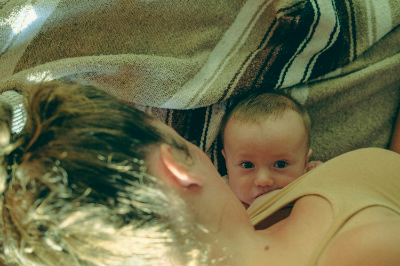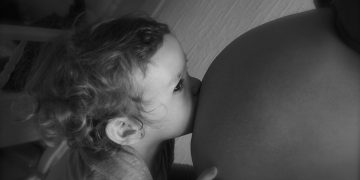Bringing a new life into the world is one of the most beautiful and rewarding experiences a woman can have. However, the journey of pregnancy and childbirth can take a toll on a woman’s body both physically and emotionally. After giving birth, many women find themselves struggling to reclaim their strength and regain their pre-pregnancy bodies. This process, known as postpartum recovery, is an important and often challenging stage in a woman’s life.
Understanding Postpartum Recovery
Postpartum recovery is the period following childbirth when a woman’s body undergoes significant physical and emotional changes. It can be a time of joy and bonding with the new baby, but it can also be a time of discomfort, pain, and uncertainty. Understanding what to expect during postpartum recovery can help women prepare mentally and physically for the challenges ahead.
The Physical Challenges of Postpartum Recovery
After giving birth, a woman’s body undergoes significant changes. The abdominal muscles, pelvic floor muscles, and other muscles that were stretched and weakened during pregnancy need time to recover and regain their strength. In addition, many women experience postpartum pain, fatigue, and hormonal imbalances that can make it difficult to exercise and take care of themselves.
One of the most common physical challenges of postpartum recovery is diastasis recti, a condition where the abdominal muscles separate due to the pressure of the growing baby. This can lead to a protruding belly, lower back pain, and a weakened core. Women also often experience pelvic floor issues such as urinary incontinence, pelvic pain, and pelvic organ prolapse.
Physical Changes
After giving birth, a woman’s body goes through a series of physical changes as it begins to heal and recover. Some common physical changes during postpartum recovery include:
- Postpartum bleeding
- Uterine contractions
- Breast engorgement
- Perineal pain
It is important for women to listen to their bodies and give themselves time to heal. Rest, proper nutrition, and gentle exercise can help speed up the recovery process.
Emotional Changes
In addition to physical changes, women may also experience a range of emotional changes during postpartum recovery. The “baby blues” is a common phenomenon that affects many new mothers, causing feelings of sadness, anxiety, and mood swings. In some cases, postpartum depression or anxiety may develop, requiring professional help and support.
It is important for women to prioritize self-care and seek help if they are struggling emotionally during postpartum recovery. Talking to a therapist, joining a support group, or practicing mindfulness and relaxation techniques can all be beneficial in managing emotional changes.
Redefining Strength
During postpartum recovery, women often feel vulnerable, exhausted, and overwhelmed. However, it is also a time when women can tap into their inner strength and resilience to navigate the challenges ahead. Redefining strength during postpartum recovery means embracing vulnerability, practicing self-compassion, and seeking support when needed.
Embracing Vulnerability

It is important for women to acknowledge and embrace their vulnerability during postpartum recovery. Giving birth and caring for a newborn are physically and emotionally demanding tasks that can leave women feeling depleted and overwhelmed. By acknowledging their vulnerability, women can begin to prioritize self-care and set realistic expectations for themselves.
Practicing Self-Compassion
Self-compassion is the practice of treating oneself with kindness, understanding, and acceptance, especially during times of difficulty or struggle. During postpartum recovery, it is important for women to practice self-compassion and be gentle with themselves as they navigate the challenges of motherhood.
Self-compassion involves recognizing and validating one’s own emotions, giving oneself grace and forgiveness, and seeking help and support when needed. By practicing self-compassion, women can cultivate resilience and inner strength during postpartum recovery.
Seeking Support
Postpartum recovery can be a lonely and isolating time for many women, especially if they do not have a strong support system in place. Seeking support from partners, family members, friends, or healthcare providers can help women feel less alone and more empowered to face the challenges of motherhood.
Support can come in many forms, including emotional support, practical help with childcare or household tasks, or professional guidance from a therapist or healthcare provider. By seeking support, women can build resilience and grace during postpartum recovery.
Rebuilding Your Strength: The Importance of Exercise

Exercise is an essential part of postpartum recovery. It can help women rebuild their strength, improve their posture, and alleviate postpartum pain. However, it is important to approach exercise with caution and listen to your body. In the early weeks after giving birth, gentle exercises such as kegels, pelvic tilts, and gentle stretches can help to strengthen the pelvic floor and core muscles.
As you progress in your postpartum recovery, you can gradually increase the intensity and duration of your workouts. Cardiovascular exercises such as walking, swimming, and cycling can help improve your fitness levels and boost your energy levels. Strength training exercises such as squats, lunges, and planks can help you rebuild your muscle strength and tone your body.
Self-Care Tips for Postpartum Recovery
Self-care is essential during the postpartum recovery period. Taking care of yourself will not only help you recover physically but also emotionally. Here are some self-care tips to help you navigate the journey of postpartum recovery:
Get Plenty of Rest
Rest is crucial for your body to heal and recover after giving birth. Try to nap when your baby naps and prioritize sleep during the night.
Eat Nutritious Foods

Eating a healthy and balanced diet will provide your body with the nutrients it needs to recover and regain its strength. Include plenty of fruits, vegetables, whole grains, and lean proteins in your meals.
Stay Hydrated
Drinking plenty of water will help you stay hydrated and energized during the postpartum recovery period. Aim to drink at least eight glasses of water per day.
Connect with Other Moms
Connecting with other moms who are going through similar experiences can provide you with support, advice, and friendship. Join a mom’s group, attend a breastfeeding support group, or connect with other moms online.
Practice Mindfulness
Practicing mindfulness techniques such as deep breathing, meditation, and yoga can help you relax, reduce stress, and improve your mental well-being.
Navigating Postpartum Recovery with Grace

Navigating postpartum recovery with grace means approaching the challenges of motherhood with patience, self-care, and resilience. By redefining strength, embracing vulnerability, practicing self-compassion, and seeking support, women can navigate postpartum recovery with grace and emerge stronger and more resilient than ever before.
Patience
Patience is a key virtue during postpartum recovery, as the body needs time to heal and adjust to the demands of motherhood. It is important for women to be patient with themselves and give themselves grace as they navigate the ups and downs of postpartum recovery.
Self-Care
Self-care is essential during postpartum recovery, as it helps women replenish their physical, emotional, and mental energy. Self-care can take many forms, including getting enough rest, eating nutritious foods, exercising gently, and taking time for oneself to relax and recharge.
By prioritizing self-care, women can better cope with the demands of motherhood and feel more resilient and empowered during postpartum recovery.
Resilience
Resilience is the ability to bounce back from challenges and setbacks, and it is a crucial quality for women to cultivate during postpartum recovery. By embracing vulnerability, practicing self-compassion, and seeking support, women can build resilience and inner strength to face the challenges of motherhood with grace.
Resilience involves staying positive, adapting to change, and learning from adversity. By cultivating resilience, women can navigate postpartum recovery with grace and emerge stronger and more empowered than ever before.
Common Questions About Postpartum Recovery

As a new mother, you may have many questions about the postpartum recovery process. Here are some common questions and answers to help you navigate this challenging time:
How long does postpartum recovery take?
Postpartum recovery can vary from woman to woman, but it typically takes several weeks to several months for the body to fully heal and return to its pre-pregnancy state. It is important to listen to your body and give yourself the time and space you need to heal.
What are the signs of postpartum depression?
Postpartum depression is a common and serious condition that can affect new mothers. Symptoms may include feelings of sadness, anxiety, irritability, and difficulty bonding with your baby. If you are experiencing any of these symptoms, it is important to seek help from a healthcare provider or therapist.
How can I support my partner during postpartum recovery?
Supporting your partner during postpartum recovery is crucial for her well-being and the well-being of your new family. Offer to help with household chores, childcare, and emotional support. Encourage her to prioritize self-care and seek help if needed.
Conclusion
Postpartum recovery is a journey that requires time, patience, and self-care. By focusing on rebuilding your strength, seeking professional help when needed, and taking care of your emotional well-being, you can navigate the challenges of postpartum recovery with resilience and grace. Remember that it is okay to ask for help, prioritize self-care, and be gentle with yourself as you embark on this transformative journey.
By following these tips and staying committed to your postpartum recovery, you can reclaim your strength, regain your confidence, and embrace the beautiful journey of motherhood with renewed vigor and vitality.







































